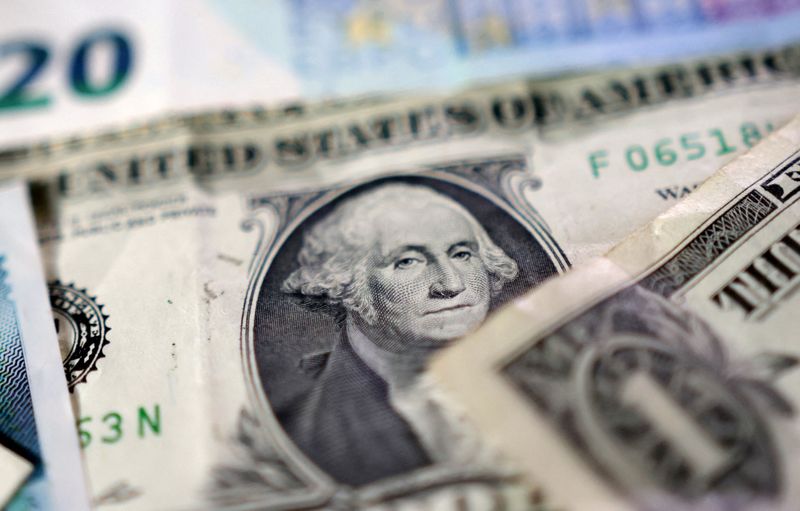
By Gertrude Chavez-Dreyfuss
NEW YORK (Reuters) -The dollar fell against a broad swathe of currencies on Wednesday, undermined by worries about the Trump administration’s tax cut and spending bill, as well as a weak 20-year Treasury bond sale that reinforced a growing view that investors are shying away from U.S. assets.
Republicans are still divided over the details of the tax legislation. U.S. President Donald Trump met with House Republicans on Tuesday and failed to convince his party’s holdouts to back his sweeping tax bill. Republican hardliners continue to argue the bill does not sufficiently cut spending, House Speaker Mike Johnson said.
The greenback, meanwhile, extended losses against major currencies such as the euro and yen after a soft sale of $16 billion in 20-year bonds. The bond priced at a record 5.047%, higher than the expected rate at the bid deadline, suggesting investors demanded a premium to take down the bond.
U.S. 20-year bond yields hit their highest since November 2023 of 5.127% following the auction. The dollar consequently extended loses against the euro and yen.
“The disappointing auction results … fit the narrative of weakening demand for U.S. assets and a ‘sell America’ trade amid fiscal concerns,” said Kim Rupert, managing director, global fixed income analysis at Action Economics in San Francisco.
“And those jitters are being exacerbated by the tax bill going through the House.”
In afternoon trading, the euro rose 0.4% against the dollar to $1.1334, after earlier climbing to a two-week high.
Trump’s tax bill would add $3 trillion to $5 trillion to the country’s debt, according to nonpartisan analysts.
Traders were also wary of U.S. officials potentially angling for a weaker dollar as part of independent trade deals on the sidelines of Group of Seven finance minister meetings underway in Canada.
Developments in Trump’s global tariff war, which have swung currencies wildly in recent months, have slowed considerably this week, even as the clock ticks to the end of a 90-day tariff respite for U.S. trade partners in the absence of new deals.
STILL OPTIMISTIC ON TRADE DEALS?
While markets remain optimistic that the White House is eager to get trade flowing again on a sustained basis, talks with close allies, Tokyo and Seoul, appear to have lost momentum.
“There’s a general reallocation away from U.S. safe-haven assets, ex-equities, partly due to the budget bill,” said Eugene Epstein, head of trading and structured products, North America, at Moneycorp in New Jersey. “Even before the bill, we already had an acceleratingly poor debt-to-GDP ratio. Our spending has outpaced growth.”


